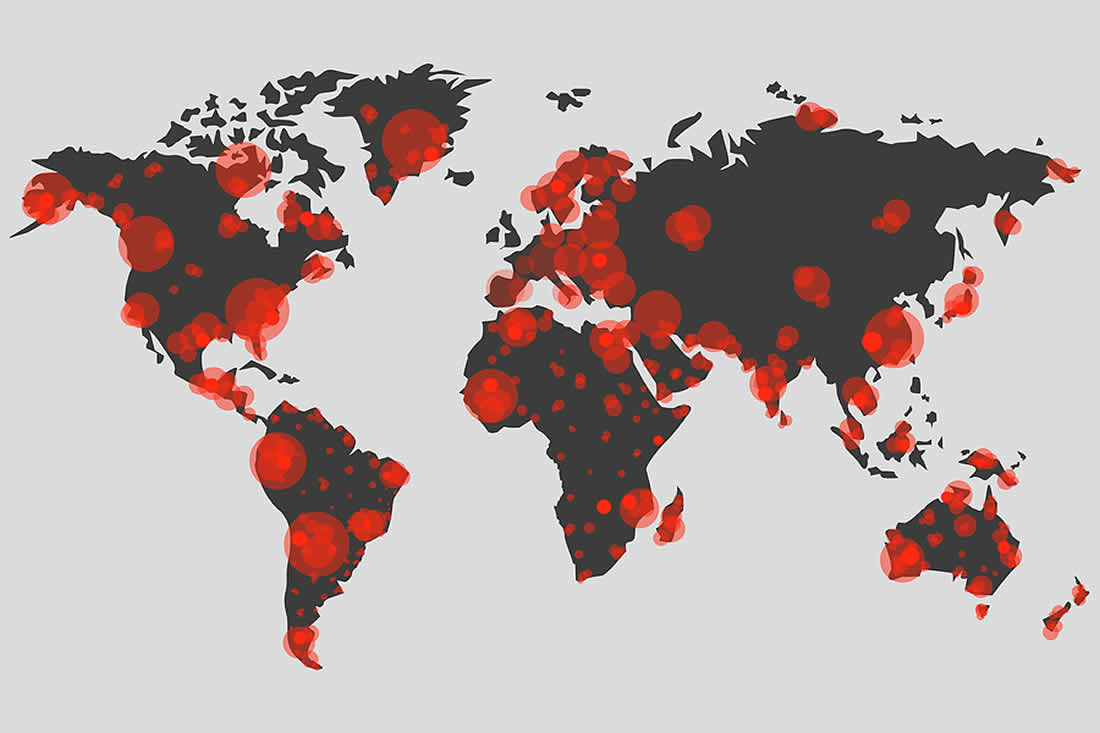Capital Campaign Fundraising During Coronavirus: Your Questions Answered

The Coronavirus Crisis likely has your nonprofit, your fundraising, and your personal/family life all thrown into a tailspin. Anxiety is high all around.
We are in unchartered territory with regard to fundraising and specifically, capital campaigns. However, we can rely on history, best practices, and kindness to lead us in the right direction.
Yes, I’m including kindness on the list of things to consider when fundraising during the current crisis. In this time of extreme need, infusing love and kindness in your daily actions will make things better — for everyone.
This past week (March 18, 2020), Andrea and I hosted a webinar to address the ever-emerging challenge of how to proceed with a campaign in light of what’s going on in the world today. You can catch a replay of that webinar here: fill out this pop-up form to access the video.
Q&A: Capital Campaign Fundraising During the Coronavirus Crisis
There were dozens of questions asked during the webinar, many of which we didn’t get to answer. In this post, we answer a number of those questions with an eye on managing your campaign through this crisis.
Is there greater concern today for campaign giving to threaten operational giving?
Answer: It’s likely that operational giving will take priority during this crisis, and in most cases, it probably should. In fact, operational giving should always come before campaign giving, because you don’t want your annual fund to decrease during a capital campaign.
Is an electronic or printed appeal best for immediate needs?
Answer: An electronic campaign is clearly faster and less expensive, but you may not reach all your donors. That being said, in most states, non-essential businesses are now closed — which would include printshops and mail houses.
Therefore, going with primarily electronic communication and solicitation will probably be necessary and most effective. It will also help you follow your local guidelines for avoiding public spaces.
If you can get a mailing out safely and that’s how your donors are accustomed to responding, you can attempt to do that, too. And if you can’t rely on mailings or electronics right now, pick up the phone and reach out to as many donors as possible.
Is this a good time to put additional emphasis on applying for foundation grants?
Answer: Most foundations work on a rolling average of the past twelve quarters, so they won’t need to decline their giving in the short term. And some foundations will increase their giving to help with the crisis. However, foundations often have long and arduous decision-making processes. Unfortunately, there are no easy answers.
If you have the staff to apply for more grants, it can’t hurt. But whenever possible, build personal relationships with the decision makers and/or the gatekeepers at each foundation.
Can you address the right tone to ask donors for support at this time?
Answer: In this uncertain time, it’s critical to be thoughtful and kind. Be sure to begin by asking donors how they are holding up. Ask about their family and their work/business.
If they seem okay, it’s appropriate to segue into how the crisis is impacting your organization and your community. And then you can ask if they are currently in a position to consider helping. Many people are looking for ways to be productive and helpful. They may be grateful for an opportunity to help.
Our campaign is in the last phase of leadership gifts solicitation, midway through cultivation and solicitation of $10,000+ donors and planning to launch with a broader campaign to a community in June before groundbreaking in August. Should we keep this schedule?
Answer: At this point, it seems likely that some of your current solicitations will get put on hold, and even the pledges you’ve secured could be delayed or not come in at all. It might be a good time to consider a loan so you can proceed with the building in the event of delayed pledge payments.
Of course, things are changing so quickly these days, any advice we give today could be different than advice we give next week. At this point, it may be prudent to hold off on a decision for a few weeks or months. In the meantime, keep planning and speaking with your donors.
We have raised $29M on a $35.5M goal for school buildings over the last 15 months. Our buildings open in August. I have been counseling our campaign committee that it becomes harder to raise the capital once the buildings open and have been recommending moving forward rapidly to raise the last $6.5M. Any advice?
Answer: It’s true. Once a building is built, it’s likely to be harder to raise money. Unfortunately, the world is in a holding pattern at the moment — it’s simply bad luck on timing.
You can, however, move forward — but with great sensitivity to what’s going on in the world around you at the moment. You can make the case that foster and underserved children are the most vulnerable at this time, because they don’t have support systems to fall back on.
What about planning studies that are half way completed?
Answer: Unfortunately, the answers you already received may have changed and so your study is probably already invalid (or at least not as accurate as it would have been).
If you are using an outside consultant, you should pause the interviews as things are changing for your donors on a daily basis. If you are handling the interviews internally, you are in a great position to circle back with them and see how they are doing.
If you’d like more information about how to do an internal study, see our information on a Guided Feasibility Study.
Bottom line — you will likely need to circle back to your donors to see how this crisis has changed their perspective in the coming weeks and months.
I get staying in touch with donors. But what about prospective donors? We are in a very active mode of face-to-face visits – is this the time to continue this process?
Answer: Unfortunately, the world has changed and there won’t be any face-to-face visits for the coming weeks and months (or at least, there shouldn’t be). The good news is that technology enables us to meet virtually (via video camera) and we have to make the best of a bad situation.
In addition, it seems less likely that this is a good time to be thinking about prospective donors. You’ll likely get better results from existing donors.
When you ask for immediate needs, are you suggesting giving the donor the message that the campaign gift conversation can wait and is less important? Are you suggesting to temporarily stop capital campaign efforts?
Answer: There’s probably no definitive answer for that right now as things are changing so quickly from week to week. What we do know is that you may have very serious immediate needs, and so the campaign may need to get put on hold.
Most people are going to be more concerned with immediate needs than long term ones. The result of this crisis could be that the timeline of your campaign gets extended. You will still want to discuss your long term (campaign) needs with donors, within the context of emerging short-term ones.
Question: We are getting ready for our 40th anniversary crowdfunding campaign. it’s supposed to kick off on April 1st. Any advice for this particular strategy?
Answer: In general, anniversary celebrations are never good motivation for a donor. In other words, it’s not a compelling reason to give. So, I suggest you dig deep and find a stronger case for support, especially during a time of crisis.
As a donor, I don’t care much about the last 40 years (other than it shows you have a strong track record). I only care what you plan to accomplish in the future.
Question: San Francisco is totally shut down and staff are all working remotely if they can. How can we expect staff to get their work done? Everyone is very distracted.
Answer: It’s true, we’re all distracted and anxious. And it will likely take time for staff to figure out how to be productive from home, especially if they are accustomed to working in an office. An added challenge of working from home is when kids are home or when there is a sick member of the household.
So we all need to be patient with one another. It will take us time to figure this out. In the meantime, there are tons of resources emerging every day on how to work from home. Capital Campaign Masters has a great post on productive virtual meetings. We will be sharing other helpful posts and resources that we like best in the coming days and weeks.
Should You Pivot Your Campaign for Emergency Funding?
- Has your organization been heavily impacted by Covid-19?
- Should you continue your capital campaign during this crisis?
- What about asking donors for gifts at this sensitive time?
Click the button below to sign up and speak with one of our campaign experts to discuss how to move forward with your fundraising campaign during these uncertain times.



I’m a consultant working with a children’s organization. We’re in the early stages of the quiet phase of our capital campaign. I just want to thank you for sharing your insights with all of us. You have helped me understand how to give the best possible advice to the organization right now. Pivot to a mini campaign for immediate needs and connect with donors! Thank you.
I’m impressed with your business and product line. I work for a Catholic Community Foundation and have been working for years to encourage Catholic institutions in our area to build endowment stewardship programs for their parishes/schools. We also developed a toolkit with templates and tools for parishes to use in planning and executing endowment building campaigns with a focus on planned and estate giving stewardship.